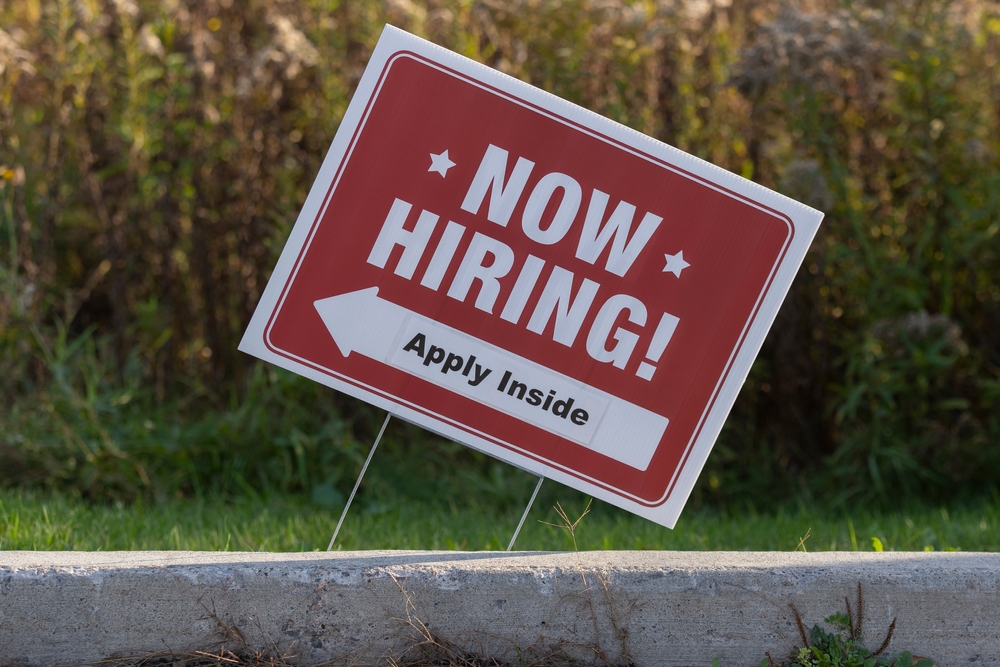Dealing with unemployment for prolonged periods of time can harm your physical and mental health but here is what you should do to cope positively
In Trump’s political climate, tens of thousands of Americans are seen struggling with unemployment. My industry is still one of the most affected by the reckless budget cuts, among employees in national parks, research labs and key government agencies.
Job loss is provenly one of the top three most stressful life experience, among disease and the loss of a loved one or divorce. It is a stuffy subject to approach, especially with the trends on the overcompetitive job market nowadays. Essentially, we see this dynamic everywhere in the world, not just in the United States.
Beyond the tragic financial effects, I am worried about the health implications. But to present my case, I will rewind to almost 15 years ago, back when the same thing happened to me. These lessons are valuable and should be used as resilience and empowerment when everything else seems to make no sense.
Nothing as bad as losing my long-term job just shortly after getting pregnant could have prepared me for the incredible depressive and unworthiness moments. Although it does not seem like the end of the world for folks currently not on the job market, coping with unemployment for prolonged periods of time can harm your physical and mental health in previously unimaginable ways.

My post-partum career did eventually turn out to be fine – and I am sure yours will be too when the time comes around. However, I want to share some effective and mindful ways of minimizing the harm that prolonged unemployment posits.
As a qualified psychologist, I learned a little too late that first-hand experience is what differentiates human pain from statistics. I was not simply an extra number in their national statistics. My situation was unique, just like everyone else’s. But I will do my best to use the power of example to inspire support and kindness throughout moments of uncertainty and sadness.
Catastrophe or temporary setback?
This handy strategy of positive coping implies personal perspective. By no means deflecting the awful reality of thing, research has shown that people who viewed their prolonged unemployment as a catastrophe were more prone to depression and substance abuse. On the other hand, it is people who viewed their experience as a temporary setback that could remain more calm in their job hunt.
In a practical manner, with prolonged unemployment comes financial strain and decrease of income and even lifelong savings. People will downgrade their style of living and spending. And perceived disaster can lead down a harmful and terrifying path.
Not being able to pay bills and get by has been linked with more than just worry. It can lead to high blood pressure and chronic risk for heart disease.
The best way to prevent this? Your mental health.
If you nurture your nervous system, physical health will remain intact. Here are 5 psychology-backed tips that I first used to stay mentally strong during my prolonged unemployment stage in my youth.
Tip #1: Allow yourself to grieve
Grief is an established type of loss pain since ancient times. It is a natural response and can be tough to navigate. Small children can face grief after suddenly losing their beloved pet one day, but so can adults in more grave situations.
Are you grieving
- The control over your life, finances, and family security?
- Your professional identity?
- Your self-esteem, confidence, and self-image?
- Your work routine and friends?
- Your job satisfaction?
All of those are valid, and everything you have lost (not physically necessarily) is objectively a crude setback. If this sounds emotional, it is because I want it to.
Take this space to feel your feelings or allow yourself to feel your feelings if you are avoiding that. This is only step one and it already takes a lot of courage to start healing from prolonged unemployment. But if ignored or denied, feelings of grief and sadness can easily turn into negative and self-destructive coping.
And if you are more of an all-time avoidant, I have a great anecdote to open your eyes (and heart). Some time ago, my good friend and neighbor had lost his high status job. He was usually a calm and tender person, but very work focused. I have always admired his dedication to following his professional goals and making things work for him. But now, some other version of him was in front of me. He had started to drink and dug himself deeper in desperation and sorrow. He was severely drunk every hour of the day.
A couple of months had gone by, and he had received a job offer from his forever dream company. This place was a huge opportunity and high up on his list of professional goals. Everything was resolved; things had worked out. One problem: it was only thoroughly disappointing that he had failed the company’s mandatory alcohol screening test.
It was astonishing. My friend could have bounced back in the most incredible way possible. Once in a lifetime’s opportunity slipped between his fingers, and I suspect it was because he had not allowed himself to feel grieve.
Tip #2: Reach out to your support networks
Another natural response to prolonged unemployment is slow isolation from social networks. But in fact, this is really the one moment one should not let go of those.
The humankind remedy for stress is community. It does not matter who it is, as long as they are a good listener. Even if your support networks may not have resourceful solutions to your unemployment, they will see that you trust them enough to open up. Tough times alongside others consolidate the bonds. And it will last longer than your stubborn unemployment.
Or, perhaps you don’t know a lot of people and would like to build new networks. Do what you currently can to get involved in your community. It can be attending local events, mentoring youngsters, supporting your church or temple, or becoming politically active.
Do not neglect the role of family support, while we’re at it. The people who care about you the most will listen to your concerns, offer positive insight, and give you a shoulder to rely on.

Tip #3: Find other ways to define yourself
Rebuilding personal identity can include learning new hobbies, signing up for new activity classes and sessions, and shifting into different fields of professional expertise. However, you can follow pretty much all the tips you can find and still feel helpless. So, it is important to understand that the brain leads the way to redefining yourself truthfully and meaningfully.
I have recently realized that our jobs define a too big part of who we are nowadays. When we introduce ourselves, the first questions pops, ‘What do you do?’. What about what we do in our free time? What about our core values that are not work-related? They all get lost in … a frantic run for career success.
I can bet that you have a long-neglected interest you have been wanting to pursue. Now is the time to take a class, join a club, or learn something such as a foreign language. Find free classes and events from community organizations in your area if your budget is an excuse.
Tip #4: Get moving and eat well
If your work schedule was limiting your physical activity, use the timing and do it now. We know that exercise is an underrated remedy for stress. It sharpens focus, release endorphins, boosts the mood, and trims your waist: all the good things you can use for a fresh session of applying to jobs. To relief stress aim to exercise for 30 minutes or more every day. A 10-minute walk can also raise your spirits for up to two hours.
Make sure you are getting lots of good nutrients as well. Your diet during unemployment might be the last thing on your mind, especially with less funds on grocery. But what you put in your body will have a huge effect on your focus, mood, and positivity. The classic diet tips work here: cut on caffeine, nicotine, sugars and carbs, and eat everything in moderation. You might want to consider grabbing some Omega-3 supplements for preserving your brain health during turmoil that is specifically known to destroy brain micro structures.
Tip #5: Take good care of yourself
Tip #5 is the hardest to adopt. While we naturally offer kindness and compassion to others, we often to overlook taking good care of ourselves as well and unconditionally as we offer others. Now more than ever, take care by keeping a mental and emotional balance, getting plenty of rest, and practicing relaxation.
It is taking you longer than anticipated to find a job. But future you will be thankful that you took good care. I know the ‘stay positive’ mantra better than anyone else. It straightforward seems impossible; end of the story. But a part of you knows differently. That part stays aware and hopeful. Find it and work with it.
What is your experience with unemployment and coping with the uncertainty that comes with it? Let us know what you think down below in the comments.
If you found this useful, continue reading 5 Signs You Have High-Functioning Anxiety (WITH TIPS).